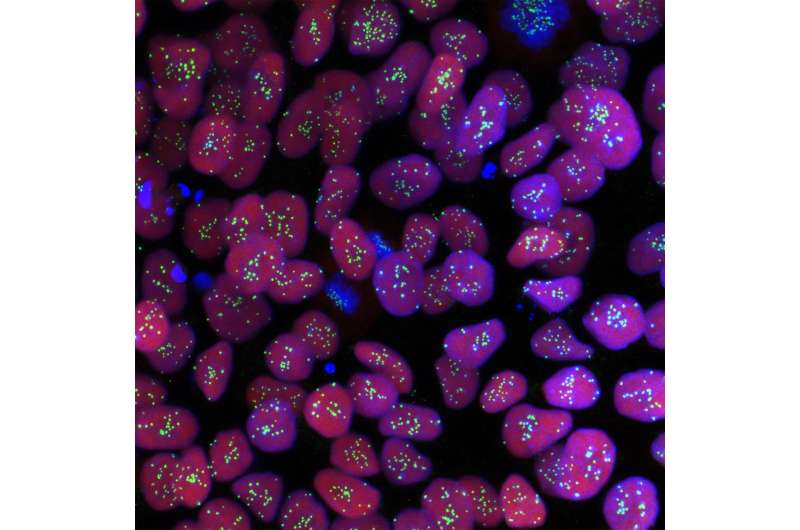First 'haploid' human stem cells could change the face of medical research

Stem cell research holds huge potential for medicine and human health. In particular, human embryonic stem cells (ESCs), with their ability to turn into any cell in the human body, are essential to the future prevention and treatment of disease.
One set or two? Diploid versus haploid cells
Most of the cells in our body are diploid, which means they carry two sets of chromosomes—one from each parent. Until now, scientists have only succeeded in creating haploid embryonic stem cells—which contain a single set of chromosomes—in non-human mammals such as mice, rats and monkeys. However, scientists have long sought to isolate and replicate these haploid ESCs in humans, which would allow them to work with one set of human chromosomes as opposed to a mixture from both parents.
This milestone was finally reached when Ido Sagi, working as a PhD student at the Hebrew University of Jerusalem's Azrieli Center for Stem Cells and Genetic Research, led research that yielded the first successful isolation and maintenance of haploid embryonic stem cells in humans. Unlike in mice, these haploid stem cells were able to differentiate into many other cell types, such as brain, heart and pancreas, while retaining a single set of chromosomes.
With Prof. Nissim Benvenisty, Director of the Azrieli Center, Sagi showed that this new human stem cell type will play an important role in human genetic and medical research. It will aid our understanding of human development – for example, why we reproduce sexually instead of from a single parent. It will make genetic screening easier and more precise, by allowing the examination of single sets of chromosomes. And it is already enabling the study of resistance to chemotherapy drugs, with implications for cancer therapy.
Diagnostic kits for personalized medicine
Based on this research, Yissum, the Technology Transfer arm of the Hebrew University, launched the company New Stem, which is developing a diagnostic kit for predicting resistance to chemotherapy treatments. By amassing a broad library of human pluripotent stem cells with different mutations and genetic makeups, NewStem plans to develop diagnostic kits for personalized medication and future therapeutic and reproductive products.


















